King Charles III makes first statement as monarch after death of his mother
King Charles has made a statement about the death of his mother, Queen Elizabeth.
He said: “The death of my beloved mother, Her Majesty the Queen, is a moment of the greatest sadness for me and all members of my family.
“We mourn profoundly the passing of a cherished Sovereign and a much-loved mother.”
Key events
Summary
If you’re just joining us or you’re dropping in to get back up to speed, here are the main points following the death of Queen Elizabeth II.
-
Queen Elizabeth II, the longest-reigning monarch in British history, died at Balmoral Castle in Scotland on Thursday afternoon, a statement from the royal family announced at 6.30pm UK time.
-
Prince Charles, heir to the throne since the age of three, is now king, and paid tribute to a “cherished sovereign and a much-loved mother”. He will be officially proclaimed as monarch at St James’s Palace in London at a meeting of the accession council on Saturday. He will not be crowned king until his coronation can be organised, possibly not for many months.
-
Large crowds gathered outside Buckingham Palace and other royal residences to mourn the loss of the Queen. Crowds in London burst into renditions of God Save the Queen, and then God Save the King to mark the passing to the reign of King Charles. “She has been so strong,” one mourner said.
-
Charles and the Queen Consort, Camilla, stayed at Balmoral on Thursday night but will travel to London on Friday where the new king will have an audience with the new prime minister Liz Truss. He will make a televised address to the nation and the Commonwealth on Friday evening, UK time.
-
Truss, who was one of last visitors to see the Queen when she had her audience with her at Balmoral on Tuesday, said the Queen was the “rock on which modern Britain was built”.
-
Flags on landmark buildings in Britain and across the Commonwealth were being lowered to half mast as a 10-day period of official mourning was announced. Church bells will be rung around the country on Friday.
-
People may be able to pay their respects to the Queen as her coffin is expected to lie in rest for 24 hours at St Giles’ Cathedral in Edinburgh on Monday, the PA news agency reported.
-
Charles is also likely on Friday to meet the Earl Marshal – the Duke of Norfolk – who is in charge of the accession and the Queen’s funeral, to approve the carefully choreographed schedule for the coming days. See our brilliant piece on these arrangements and the codeword for the operation – “London Bridge is down”.
-
Leaders, monarchs and dignataries from around the world have been paying tribute to a monarch who, in the words of US president Joe Biden, “defined an era”. An emotional Justin Trudeau, Canada’s prime minister, said he would miss the Queen, who was “one of my favourite people”. The UN secretary general António Guterres said the Queen was “widely admired for her grace, dignity, and dedication around the world”.
-
The world of showbiz also came out in strength. Sir Elton John said the Queen had been “a huge part of my life from childhood to this day, and I will miss her dearly”, while Dame Helen Mirren, who portrayed the Queen on the silver screen and on the stage, described the monarch as the “epitome of nobility”.
-
The UK newspapers carry portraits of the Queen, tributes and special editions as the front pages make the end of her long rule. “Our beloved Queen is dead”, said the Express, while the Mirror said “Thank you”.
Charlotte Graham-McClay reports on response to the Queen’s death in Wellington, New Zealand:
The first mourners have arrived at New Zealand’s parliament, in the capital, Wellington, to leave tributes for Queen Elizabeth in an official condolence book. It was opened in the past hour by prime minister Jacinda Ardern and the governor general, Cindy Kiro.
“With our deepest gratitude for your love for the people of Aotearoa New Zealand, and for your life of service,” Ardern wrote.
She followed the words with the Māori proverb “he kotuku rerenga tahi”, which translates to “a white heron’s flight is seen but once”. It refers to a rare event, and the comparison is intended as an honour.
Philip Rossiter, one of the first members of the public to sign the book, said he had turned out in deference to “my head of state”, and respect for Queen Elizabeth as a public servant himself.
“I think she was the consummate public servant,” he said. “She served the country, the Commonwealth, and the world.”
Also paying her respects was Michelle Hogan, who was visiting Wellington from Auckland, and said the Queen’s death marked the end of an era.
“I just feel like writing that it’s awful, isn’t it?” Hogan said. “It’s a bloody sad day.”
David Hibberd, who moved to New Zealand from England 11 years ago, said he had turned out to leave his condolences because he loves the royal family.
“The news was a shock this morning,” he said. “It was really hard to take, and I just wanted to come down and pay my respects for her service of being the Queen for 70 years.”
The Queen is being mourned around the world:
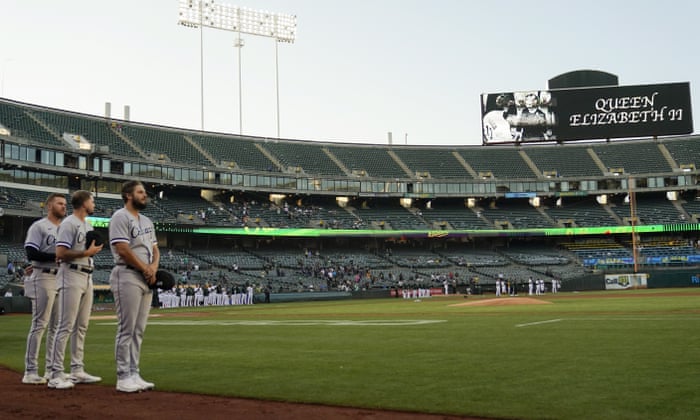
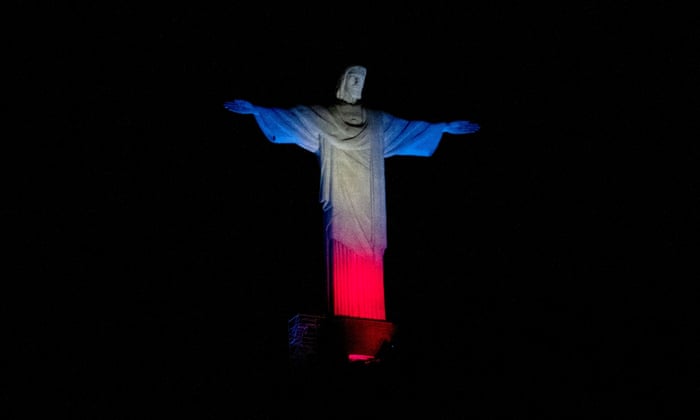
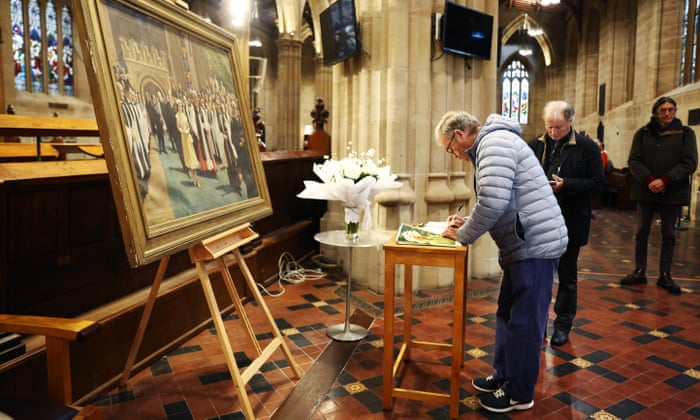
Charles to be formally proclaimed king at accession council on Saturday
Charles has automatically become king on the death of his mother, but an accession council is usually convened at St James’s Palace in London within 24 hours of the death of a sovereign.
It will be later following the death of the Queen because the announcement of her death did not come until early evening on Thursday, meaning there was not enough time to set the plans in motion for Friday morning.
Historically, the entire privy council is summoned to the accession council to oversee the formal proclamation of a new monarch.
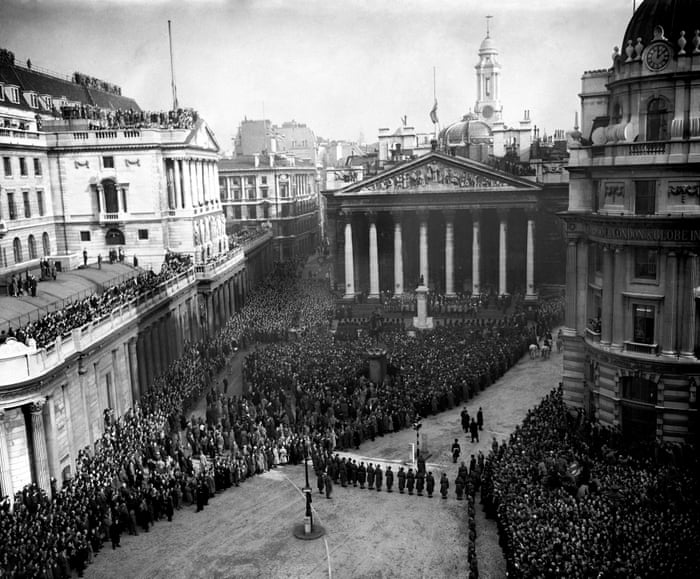
But with the number of privy counsellors – who are lifetime members and mostly past and present politicians – now standing at more than 700, restrictions have been put in place.
Just 200 will be summoned, and those cut will be asked to enter an annual ballot for a few remaining seats, with the decision prompting a row over the lack of consultation and the loss of the key duty, the Telegraph previously reported.
The accession council must take place before parliament meets, and parliament should meet as soon as practicable after the death of a sovereign.
The accession council is divided into two parts, and is presided over by the lord president of the council, who has ministerial responsibility for the privy council office.
Penny Mordaunt was appointed lord president of the council, and leader of the House of Commons, on 6 September in Liz Truss’s new cabinet, in place of Mark Spencer, with the Queen officially approving the appointment.
‘Our beloved Queen is dead’: how UK papers covered the moment
My colleague Alison Rourke has rounded up the front pages of most of the UK papers marking an “historic and sombre day” in the nation’s history.
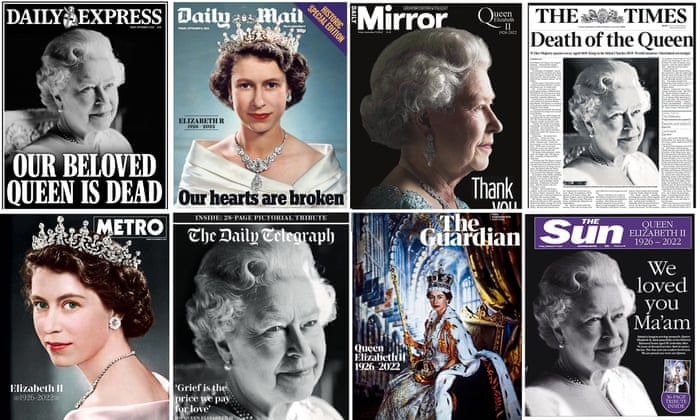
The Times says that the Queen’s life that spanned “an era of vast social, material and technological change”, but ultimately she will be remembered as “the woman who saved the monarchy in this country”.
In its coverage, the Telegraph casts forward to King Charles’s reign, noting the new monarch has “vowed to avoid ‘meddling’ in politics, but is unlikely to stop fighting for the causes he has championed for decades”. Alison writes that the paper adds that no one who knows Charles expects him to reign in the same way as his mother.
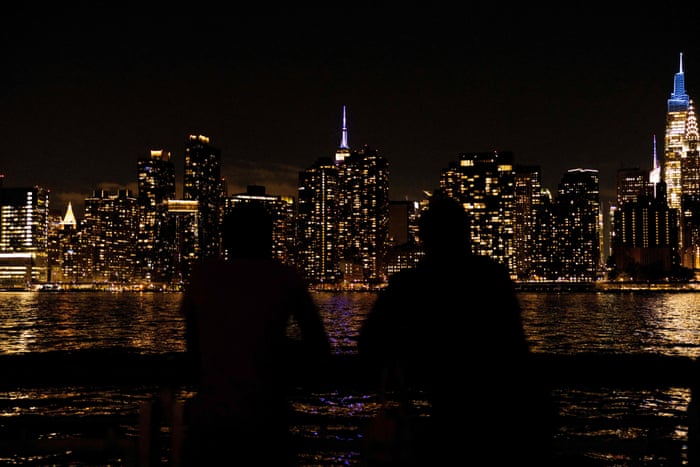
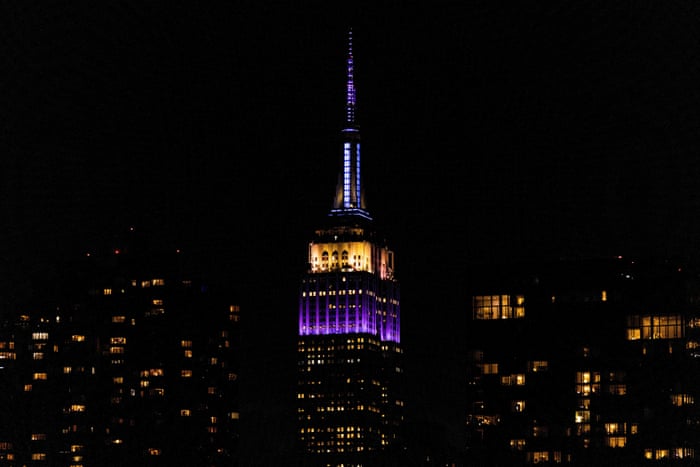
There’s a lovely, touching anecdote going around about the renowned trauma surgeon David Nott, who met the Queen when he returned from working in the war-torn Syrian city of Aleppo.
Nott described in his book, War Doctor, how he was discussing his work with the Queen at Buckingham Palace when he began to feel overwhelmed by emotion, perhaps because his mother had recently died.
He wrote: “I hoped she wouldn’t ask me another question about Aleppo. I knew if she did, I would completely lose control.”
Sensing his distress, the Queen changed the subject to her corgis and they proceeded to give their attention to the dogs.
“‘There,’ the Queen said. ‘That’s so much better than talking, isn’t it?’.”
Guardian Australia political editor, Katharine Murphy, was on holiday and touring the state rooms of Buckingham Palace when news filtered through to the tourists that the Queen was ill.
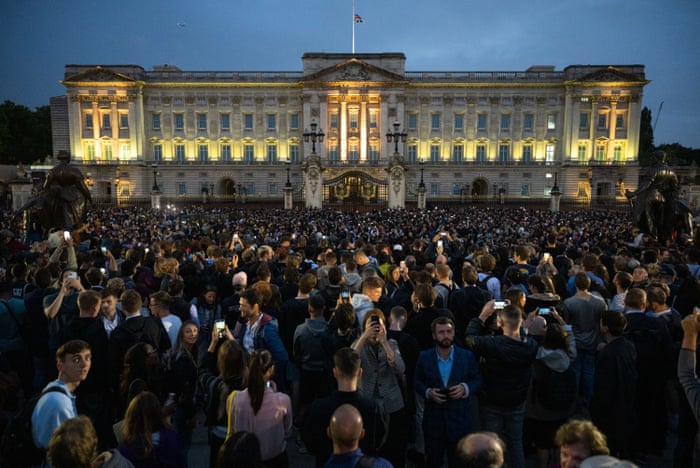
She’s sent an elegiac dispatch from London where she observes that as autumnal rain replaces the summer’s golden weather, Britain as a whole finds itself in a state of flux with the monarch’s passing after 70 years on the throne. Liz Truss is just days into her prime ministership and was probably one of the last people to see the Queen when she visited Balmoral to be ushered in as Britain’s new leader.
Read the whole piece here:
New Zealand’s prime minister, Jacinda Ardern, has talked about how she knew the Queen had died when a police officer shone torchlight into her bedroom at around 4.50am in the morning.
Ardern said she had been reading about the Queen’s ill health before going to bed, so “when that torchlight came into my room I knew immediately what it meant”.
Here she is talking about that moment and about how she “learned so much” from observing the monarch at close quarters.
More UK front pages to compare and contrast.
The Daily Mail has a picture of a youthful Queen and boasts an “historic special edition” inside.
The Telegraph has the Queen in her later years and a quote from her that reads: “Grief is the price we pay for love.”
“Our beloved Queen is dead”, says the Express.
“Thank you” says the Mirror.
Even the Financial Times goes with the flow today with its poster-style front page.
Fiji’s prime minister Frank Bainimarama has said on Twitter on Friday morning that “Fijian hearts are heavy” in the wake of the Queen’s death.
The Queen visited the Pacific nation six times during her 70 years on the throne (but was overthrown as head of state in a coup in 1987).
Fijian hearts are heavy this morning as we bid farewell to Her Majesty Queen Elizabeth II. We will always treasure the joy of her visits to Fiji along with every moment that her grace, courage, and wisdom were a comfort and inspiration to our people, even a world away.
Fijian hearts are heavy this morning as we bid farewell to Her Majesty Queen Elizabeth II. We will always treasure the joy of her visits to Fiji along with every moment that her grace, courage, and wisdom were a comfort and inspiration to our people, even a world away. pic.twitter.com/SpSHLFfx7B
— Frank Bainimarama (@FijiPM) September 8, 2022
Britain’s newspapers are of course united in marking the Queen’s death with special editions and wraparound covers carrying portraits.
The Guardian chooses to run with a Cecil Beaton portrait of the Queen from her coronation in 1953, and inside there are 19 pages of news coverage.
That’s also the choice of the Times…
And the Star, which has the headline “You did your duty, Ma’am”…
And also the i and the online Independent, titles once celebrated for studiously downplaying royal stories.
















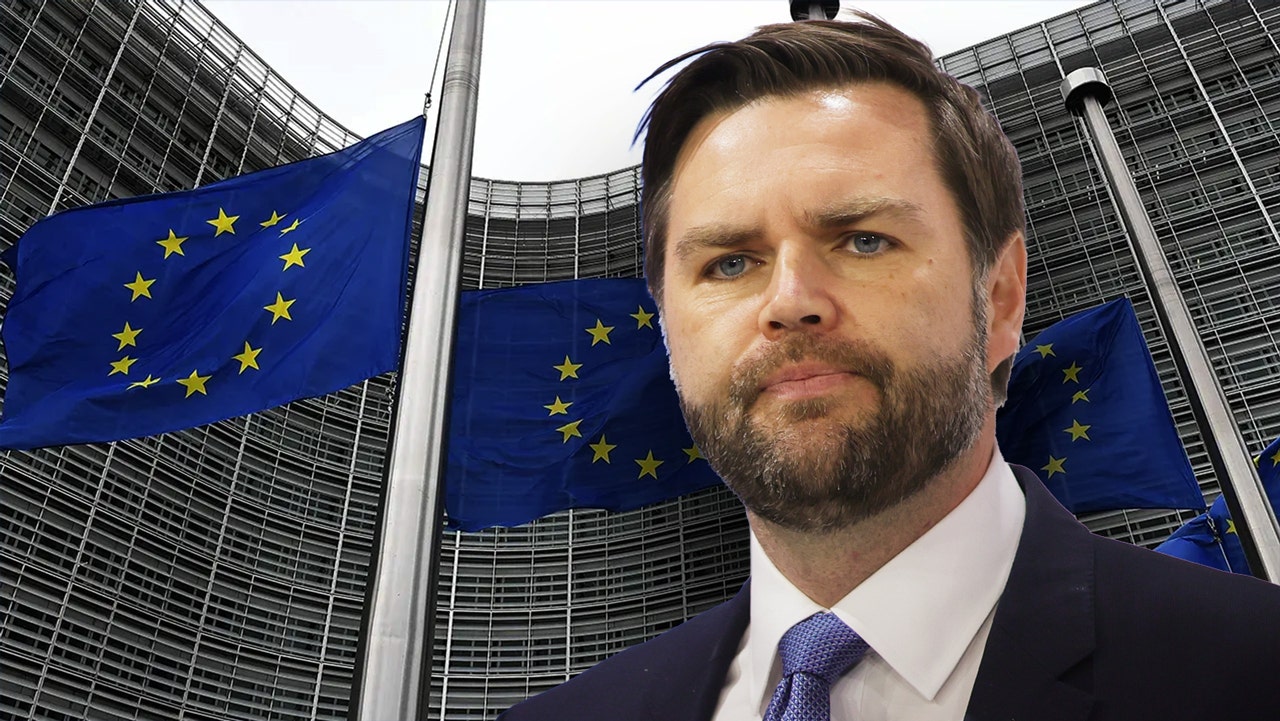



Discussion about this post